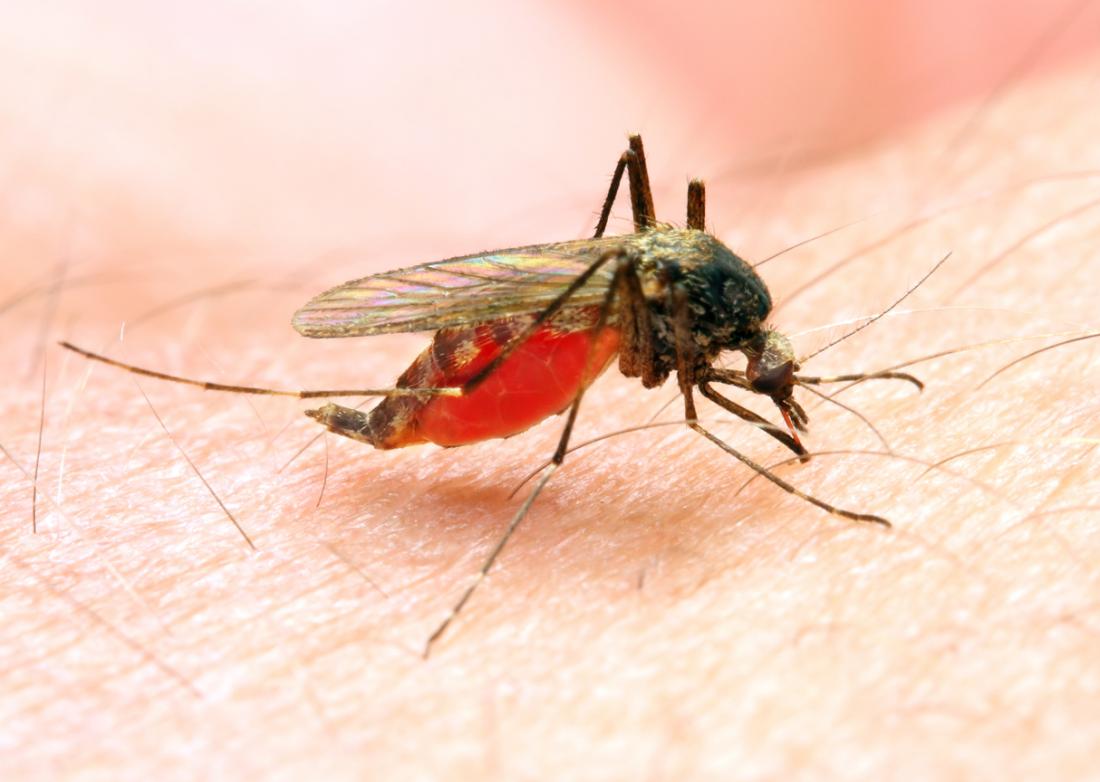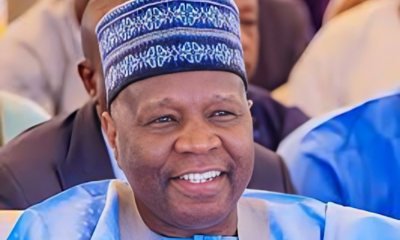Health
First Vaccine against Malaria not for Adults — FG

The Federal Government has said that the first malaria vaccine recommended by the World Health Organization (WHO), will be administered in four doses to 5-month-old babies.
WHO also said the vaccine will be effective against the deadliest parasite, especially common in Africa and it’s not for adults.
The Minister of Health, Dr Osagie Ehanire, said this on Tuesday in Abuja at the Ministerial bi-weekly meeting on the update of COVID-19 response and development in the country’s health sector.
Newsmen report that the 2021 World Malaria Report (WMR 2021), indicates that Nigeria contributes 27 per cent of the global malaria cases and 32 per cent of global malaria deaths.
The minister said that the country witnessed a total of 57 million clinical cases per year and annual deaths of about 100,000.
“It is also estimated that about 60 per cent of all out-patients and 30 per cent of all hospital admissions across the country are due to malaria”, he said.
Ehanire said that vaccines for malaria were still under review with the first one known to have reduced the risk of malaria by 40 per cent in children in Africa as of 2020.
“The global target of the WHO is to reduce the incidence of malaria by at least 30 per cent by 2030,” he said.
The minister said that malaria remains one of the most common diseases prone to misdiagnosis and self-medication.
“In Nigeria especially, any symptoms of chills, body pain and headache often equal the purchase of anti-malarial drugs; sometimes coupled with typhoid drugs; from the nearest pharmacy.
“Although effective in some cases, this ideology can be detrimental to our health due to complications and increasing resistance to some anti-malarial drugs,” he said.
He said that efforts were in place to combat the malaria scourge.
“Recently, President Muhammadu Buhari inaugurated the Nigeria End Malaria Council (NEMC) and mandated it to ensure successful implementation of the programme.
”The right implementation of strategies utilising collaboration and interventions would be based on the resolve of the administration to ensure the protection of the health of Nigerians and in the spirit of one health,” he said.
He said that the FMOH placed strong importance on interventions that would limit vector-human contact towards protecting people from diseases.
“There are more than 30 anopheles species of mosquitoes that have been reported across the five geo-ecological zones in the country.
“One reason why the mosquito has thrived across all parts of the country is its ability to breed and proliferate under unusual conditions.
“The importance of this critical vector and the diseases it transmits established the Integrated Vector Management Branch within the National Malaria Elimination Programme.
“The essence of the programme is to coordinate all efforts to mitigate the impact of the diseases,” he said.
Ehanire said the objective of the National Malaria Strategic Plan was to seek to improve access and utilisation of vector control interventions to at least 80 per cent of the targeted population by 2025.
“Some of the vector interventions being deployed include mass distribution of Insecticide Treated Nets (ITNs) on the principle,” he said.
The minister said that the NMEP, in collaboration with partners, had established 29 entomological surveillance sentinel sites across the country.
He said the purpose of the establishment was to monitor the vector behaviour and insecticide resistance patterns across the different ecological zones of the country.
The minister said that the country had been profiled for critical locations where Indoor Residual Spraying was urgently required in about 25 states.
Newsmen recall that according to the 2010 Nigeria Malaria Indicator Survey (NMIS 2010), there has been a continuous decline in malaria from 42 per cent in 2010 to 27 per cent in 2015.
In the 2018 Nigeria Demographic and Health Survey (NDHS 2018), there was a further decline in malaria cases from 27 per cent to 23 per cent.
This decline was believed to have resulted from a thorough programme implementation of the National Malaria Strategic Plan.
The country is currently implementing the National Malaria Strategic Plan of 2021 to 2025, with the intent to achieve a parasite prevalence of less than 10 per cent.
It is also expected to reduce mortality attributable to malaria to less than 50 deaths per 1,000 live births by the year 2025.
It will take about N1.89 trillion to implement this five-year plan.
(NAN)
Health
UNICEF Promotes Menstrual Hygiene for Girls

The United Nations Children’s Fund (UNICEF) has encouraged girls to embrace menstruation with pride and confidence, recognizing themselves as vital contributors to humanity’s sustainability.
Mrs Aderonke Akinwole, Social and Behavioural Change Specialist at UNICEF, gave the advice during an event on Wednesday organised with the Nigeria Girls’ Guild and Lagos State Primary Health Care Board.
The event was held to commemorate Menstrual Hygiene Day (MHDay) and was attended by students from both public and private schools across Lagos.
With the theme ‘Together for a Period Friendly World,’ the event aimed to raise awareness and promote dignity in menstrual hygiene.
“When a girl begins menstruation, it should be celebrated. It signifies her transition into womanhood and her ability to sustain life.
“They should be proud, and seek accurate, helpful information to remain safe, clean, and healthy during their period,” Akinwole said.
She emphasised that girls must not feel ashamed, as menstruation is a natural part of womanhood and a symbol of female dignity.
She urged the state government to increase sensitisation efforts and include menstrual hygiene education in school curricula, religious settings, and community platforms.
Akinwole also warned against stigmatisation, especially from boys, and called for boys to be educated to respect menstruation as part of girls’ lives.
“Girls should understand the menstrual cycle even before it starts. This should be part of health education in schools, churches, mosques, and communities,” she said.
She explained that girls need awareness on menstrual hygiene management and should know how to prepare for their periods in a healthy, informed way.
Mrs Honfor Adesola, Director of Education at Lagos State Primary Education Board, commended UNICEF’s support in promoting menstrual hygiene and addressing issues affecting girls.
Adesola highlighted that maintaining menstrual hygiene is vital in preventing infections and ensuring comfort throughout the menstrual cycle.
She noted that the event also helped to raise awareness about the Human Papillomavirus (HPV) vaccine available free in health centres across Lagos.
“We’re here to mark MHDay and to engage girls on HPV awareness. The state government has provided the vaccine, and sensitisation must continue,” she explained.
She encouraged girls to discuss the HPV vaccine with their parents to gain consent, ensuring protection against cervical cancer.
“The vaccine is safe, effective, and accessible in state facilities for girls aged nine to fourteen, but many have not yet been vaccinated,” she added.
Meanwhile, Ethagah Divine, Head Girl of New Estate Baptist Secondary School, Surulere, called on NGOs to provide sanitary pads for girls.
She urged more campaigns and rallies to distribute free menstrual products, like UNICEF did, to promote hygiene and dignity during menstruation.
Miss Emmanuella Azubuike, a student of the same school, expressed gratitude to UNICEF and partners for the impactful menstrual hygiene awareness event.
“This programme has expanded my knowledge on menstrual hygiene and HPV. More NGOs should support these campaigns to reach and educate more young girls,” she said. (NAN)
Health
Soludo’s Wife Establishes Pad Banks in 300 schools

Wife of Anambra State Governor, Dr Nonye Soludo, says she has established pad banks in 300 schools across the state as part of her pet project, Healthy Living Initiative.
Mrs Soludo disclosed this in a message in Awka on Wednesday to mark the 2025 World Menstrual Hygiene Day.
She said that the initiative was her own approach to helping school girls whose academic focus could be affected during menstruation and related emergencies.
Mrs Soludo stressed the need to provide immediate solutions for menstrual emergencies in schools, so that girls caught off guard could confidently rely on the pad banks.
“Official data say that an estimated 37 million women and girls in Nigeria are unable to afford sanitary pads and only rely on unhygienic alternatives.
“The data reinforce World Health Organisation and United Nations Children’s Fund finding that poor water, sanitation and hygiene infrastructure hinders safe and dignified menstruation for women and girls.
“Other data say that only two in five schools globally offer menstrual health education and just one in three have bins for menstrual waste.
“These figures challenge key stakeholders to find practical solutions to address the root of the problem while the situation remains reversible.”
She called for intensified campaign to reach more women and girls currently facing menstrual hygiene challenges.
The governor’s wife noted that the growing number of women, especially girls, in urgent need of menstrual support makes it essential for stakeholders to re-strategise their campaign approach.
According to her, menstrual health remains the right of every girl-child.
She encouraged girls at the designated schools participating in the pad bank project to use the supplies with confidence.
Mrs Soludo assured them that her NGO was fully committed to restocking any of the pad banks that run out of sanitary products.(NAN)
General News
More Recognitions, Honor for Ogbodo, Receives Peace Ambassador, Ministerial Award for Outstanding Service

By David Torough, Abuja
Medical Director of Lydia Memorial Hospital in Okpokwu, Benue State, Dr. Mark Ogbodo has once again been honored for his exceptional service to humanity.
This time receiving the prestigious title of Peace Ambassador and a Ministerial Award for the Most Dedicated, Committed and Hardworking Hospital in Benue State.
The honours were bestowed by the National Association of Nigerian Youths Ambassadors for Peace Initiative (NANYAPI) in recognition of Dr.
Ogbodo’s bravery, dedication, and unwavering commitment to medical service delivery in Okpokwu Local Government Area, Benue State, and Nigeria at large.Presenting the award, the President of NANYAPI, Comrade Aji Abraham, described Dr.
Ogbodo as a role model whose leadership and selfless service have distinguished him as a beacon of peace and a symbol of hope. He commended Dr. Ogbodo’s outstanding managerial skills and humanitarian spirit, which he said inspired the association to honour him.The event, held at Lydia Memorial Hospital, drew friends, well-wishers, and dignitaries from various sectors. In a welcome address on behalf of the hospital’s management and staff, Miss Victory Oche expressed heartfelt appreciation for the presence of the association’s leadership and delegates, as well as supporters of Dr. Ogbodo.
“May our purpose of gathering here today, which is to celebrate and honour our mentor and leader, Dr. Mark A. C. Ogbodo, for his unwavering and relentless contributions to humanity and nation building, be fruitful,” she said.
In his acceptance speech, Dr. Ogbodo expressed profound gratitude for the recognition, stating that the award had deeply touched him and would further motivate his advocacy for peace and service to humanity.
“I am deeply humbled and honoured to receive this award,” he said. “It means a lot to me as it acknowledges contributions I never knew were being noticed. This recognition will further spur me to continue promoting peace, unity, and development.”
He urged fellow peace ambassadors to embody the values of integrity, neutrality, and positive engagement. “Tarnish no image. Blackmail no opponent. Build bridges across tribes, cultures, and political divides. Serve as true ambassadors of peace,” he urged.
Dr. Ogbodo pledged continued support for NANYAPI and reaffirmed his commitment to peacebuilding efforts across Nigeria.
The ceremony also featured goodwill messages from traditional leaders, security officers, youth leaders, and the hospital staff, including HRH Chief Mark Barron Onah, Ward Head of Akpodo Community; SP Okoliko, DPO of Ugbokolo Division; Hon. Andrew Ameh, Youth Leader of Amejo Ward; Inspector Ogbaka of Ugbokolo Police Division; and staff of Lydia Memorial Hospital.





























